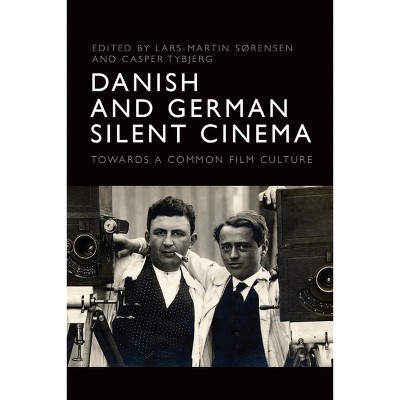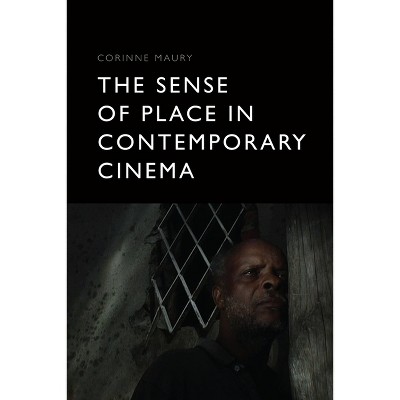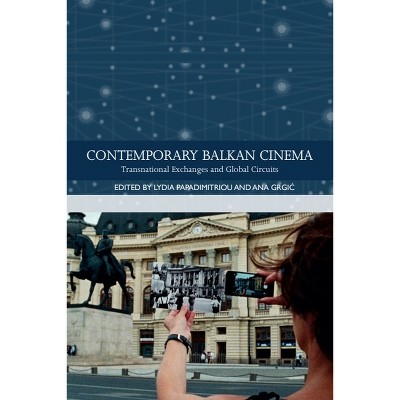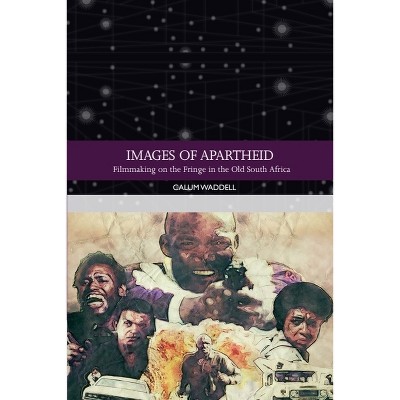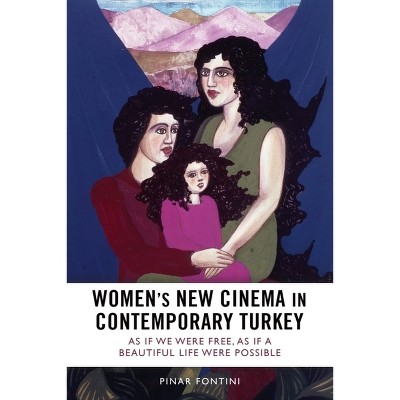New Blood in Contemporary Cinema - by Patricia Pisters (Paperback)

About this item
Highlights
- Since the turn of the millennium, a growing number of female filmmakers have appropriated the aesthetics of horror for their films.
- About the Author: Professor Patricia Pisters is Professor of Film Studies and Media Culture at the University of Amsterdam.
- 256 Pages
- Performing Arts, Film
Description
About the Book
Ther book investigates contemporary women directors who put 'a poetics of horror' to new use in their work, expanding the range of gendered and racialized perspectives in the horror genre
Book Synopsis
Since the turn of the millennium, a growing number of female filmmakers have appropriated the aesthetics of horror for their films. In this book, Patricia Pisters investigates contemporary women directors such as Ngozi Onwurah, Claire Denis, Lucile Hadzihalilovic and Ana Lily Amirpour, who put 'a poetics of horror' to new use in their work, expanding the range of gendered and racialised perspectives in the horror genre. Exploring themes such as rage, trauma, sexuality, family ties and politics, New Blood in Contemporary Cinema takes on avenging women, bloody vampires, lustful witches, scary mothers, terrifying offspring and female Frankensteins. By following a red trail of blood, the book illuminates a new generation of women directors who have enlarged the general scope and stretched the emotional spectrum of the genre.
From the Back Cover
'Revisiting the foundational question of feminist critique - what difference does difference make? - this expansive study of female-directed horror films considers not just what feminist readings offer to a poetics of horror, but what the poetics of horror can offer to feminist thinking, expanding its understanding of materiality, embodiment, affect, violence, desire, form, and relationality itself.' Eugenie Brinkema, author of The Forms of the Affects Since the turn of the millennium, a growing number of female filmmakers have appropriated the aesthetics of horror for their films. In this book, Patricia Pisters investigates contemporary women directors such as Ngozi Onwurah, Claire Denis, Lucile Hadzihalilovic and Ana Lily Amirpour, who put 'a poetics of horror' to new use in their work, expanding the range of gendered and racialized perspectives in the horror genre. Exploring themes such as rage, trauma, sexuality, family ties and politics, New Blood in Contemporary Cinema takes on avenging women, bloody vampires, lustful witches, scary mothers, terrifying offspring and female Frankensteins. By following a red trail of blood, the book illuminates a new generation of women directors who have enlarged the general scope and stretched the emotional spectrum of the genre. Patricia Pisters is Professor of Film, Media and Culture at the University of Amsterdam. Cover image: Evolution by Lucile Hadzihalilovic (France/Spain/Belgium, 2015). Courtesy of Les Films du Worso Cover design: [EUP logo] edinburghuniversitypress.com ISBN BarcodeReview Quotes
In her skillful examination of these films, Pisters succeeds in walking a fine line between critical commentary steeped in film theory and accessible analysis of plot and scenes.--E. Jeitner, Stockton University "CHOICE"
New Blood in Contemporary Cinema is an exciting and ground-breaking book. Pisters asks us to rethink the history and poetics of the horror film in relation to the significant contribution of women directors from a range of backgrounds and political perspectives. Drawing on the metaphor of 'new blood', Pisters explores the relationship between gender and aesthetics in a series of horror formats and inter-generic contexts. She presents her argument through a collection of beautifully nuanced analyses of a wide range of films told from the perspective of women - both behind and in front of the camera. Her focus is on poetic opacity, difference and complexity. Impressive in its scope and originality, New Blood offers a much-needed addition to the growing literature on the major role women have played in the history of the cinema. It is essential reading for lovers of the cinema, horror and the aesthetics of film.--Barbara Creed, University of Melbourne
Revisiting the foundational question of feminist critique--what difference does difference make?--this expansive study of female-directed horror films considers not just what feminist readings offer to a poetics of horror, but what the poetics of horror can offer to feminist thinking, expanding its understanding of materiality, embodiment, affect, violence, desire, form, and relationality itself.--Eugenie Brinkema, author of The Forms of the Affects
About the Author
Professor Patricia Pisters is Professor of Film Studies and Media Culture at the University of Amsterdam.
Shipping details
Return details
Trending Non-Fiction






